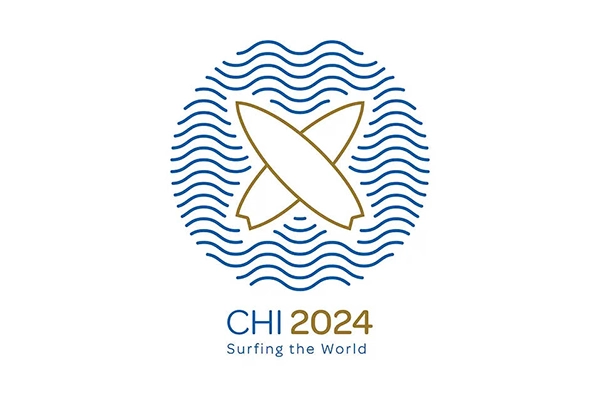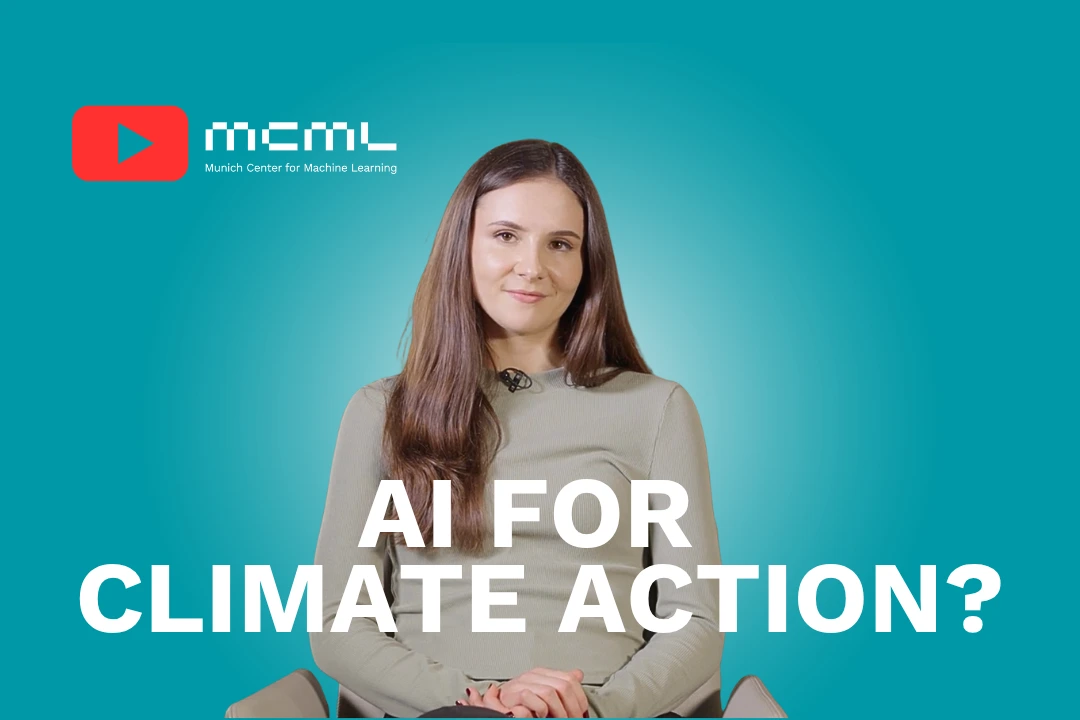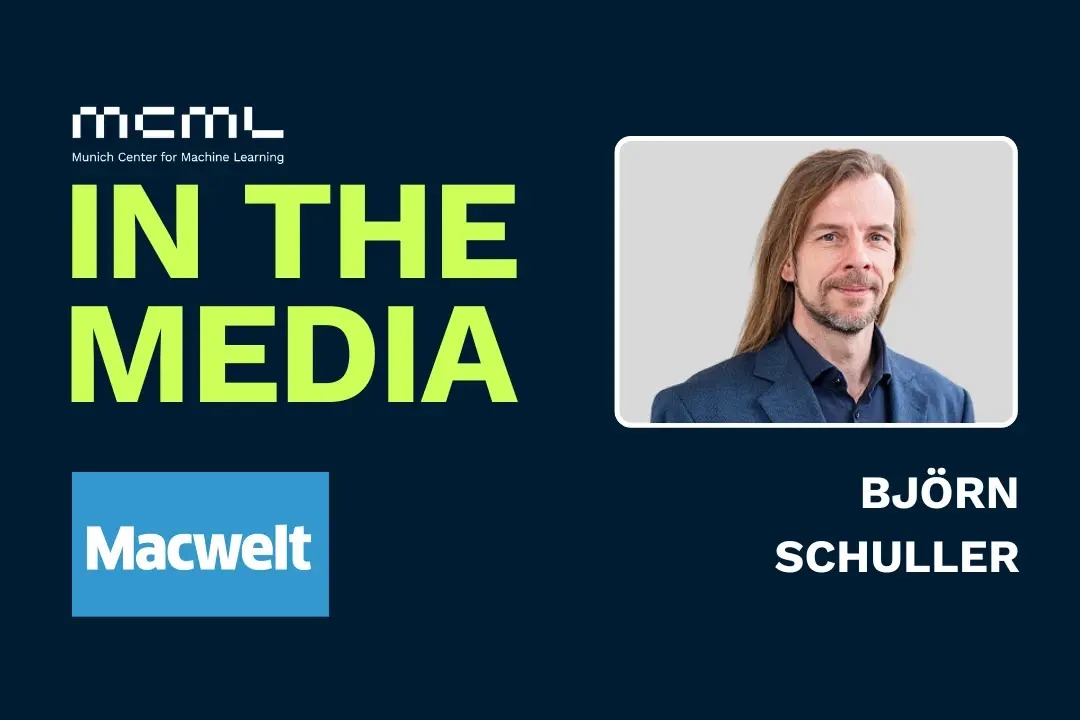06.05.2024

MCML Researchers With Four Papers at CHI 2024
Conference on Human Factors in Computing Systems (CHI 2024). Honolulu, Hawaii, 11.05.2024–16.05.2024
We are happy to announce that MCML researchers are represented with four papers at CHI 2024. Congrats to our researchers!
Main Track (4 papers)
Uncovering and Addressing Blink-Related Challenges in Using Eye Tracking for Interactive Systems.
CHI 2024 - Conference on Human Factors in Computing Systems. Honolulu, Hawaii, May 11-16, 2024. DOI
Abstract
Currently, interactive systems use physiological sensing to enable advanced functionalities. While eye tracking is a promising means to understand the user, eye tracking data inherently suffers from missing data due to blinks, which may result in reduced system performance. We conducted a literature review to understand how researchers deal with this issue. We uncovered that researchers often implemented their use-case-specific pipeline to overcome the issue, ranging from ignoring missing data to artificial interpolation. With these first insights, we run a large-scale analysis on 11 publicly available datasets to understand the impact of the various approaches on data quality and accuracy. By this, we highlight the pitfalls in data processing and which methods work best. Based on our results, we provide guidelines for handling eye tracking data for interactive systems. Further, we propose a standard data processing pipeline that allows researchers and practitioners to pre-process and standardize their data efficiently.
MCML Authors

Sven Mayer
Prof. Dr.
Associate
* Former Associate
Office Wellbeing by Design: Don’t Stand for Anything Less.
CHI 2024 - Conference on Human Factors in Computing Systems. Honolulu, Hawaii, May 11-16, 2024. DOI
Abstract
The modern workplace has been optimized towards increasing productivity, often at the cost of long-term worker wellbeing. This systemic issue has been acknowledged in both research and practice, but has not yet been solved. There is a notable lack of practical methods of incorporating physical activity and other wellbeing practices into productive workplace activities. We see a gap between research endeavors and industry practice that motivates a call for increased collaboration between the two parties. In response, our workshop aims to bring together researchers and practitioners to work together in identifying a set of grand challenges for the field. Through collaboration, we will create a concrete research agenda to create a resilient future workplace that explicitly incorporates holistic worker wellbeing.
MCML Authors

Luke Haliburton
Dr.
* Former Member
A Longitudinal In-the-Wild Investigation of Design Frictions to Prevent Smartphone Overuse.
CHI 2024 - Conference on Human Factors in Computing Systems. Honolulu, Hawaii, May 11-16, 2024. DOI
Abstract
Smartphone overuse is hyper-prevalent in society, and developing tools to prevent this overuse has become a focus of HCI. However, there is a lack of work investigating smartphone overuse interventions over the long term. We collected usage data from N = 1, 039 users of one sec over an average of 13.4 weeks and qualitative insights from 249 of the users through an online survey. We found that users overwhelmingly choose to target Social Media apps. We found that the short design frictions introduced by one sec effectively reduce how often users attempt to open target apps and lead to more intentional app-openings over time. Additionally, we found that users take periodic breaks from one sec interventions, and quickly rebound from a pattern of overuse when returning from breaks. Overall, we contribute findings from a longitudinal investigation of design frictions in the wild and identify usage patterns from real users in practice.
MCML Authors

Luke Haliburton
Dr.
* Former Member
The Social Journal: Investigating Technology to Support and Reflect on Meaningful Social Interactions.
CHI 2024 - Conference on Human Factors in Computing Systems. Honolulu, Hawaii, May 11-16, 2024. DOI
Abstract
Social interaction is a crucial part of what it means to be human. Maintaining a healthy social life is strongly tied to positive outcomes for both physical and mental health. While we use personal informatics data to reflect on many aspects of our lives, technology-supported reflection for social interactions is currently under-explored. To address this, we first conducted an online survey (N=124) to understand how users want to be supported in their social interactions. Based on this, we designed and developed an app for users to track and reflect on their social interactions and deployed it in the wild for two weeks (N=25). Our results show that users are interested in tracking meaningful in-person interactions that are currently untraced and that an app can effectively support self-reflection on social interaction frequency and social load. We contribute insights and concrete design recommendations for technology-supported reflection for social interaction.
MCML Authors

Luke Haliburton
Dr.
* Former Member
Related

29.09.2025
Machine Learning for Climate Action - With Researcher Kerstin Forster
Kerstin Forster researches how AI can cut emissions, boost renewable energy, and drive corporate sustainability.

26.09.2025
Björn Ommer Featured in WELT
MCML PI Björn Ommer told WELT that AI can never be entirely neutral and that human judgment remains essential.

25.09.2025
Björn Schuller Featured in Macwelt Article
MCML PI Björn Schuller discusses in Macwelt how Apple Watch monitors health, detects subtle changes, and supports early intervention.

24.09.2025
MCML PI Björn Ommer Featured on ZDF NANO Talk
MCML PIs Björn Ommer & Alena Buyx discuss AI’s essence on ZDF NANO Talk, covering tech, ethics, and societal impact.


